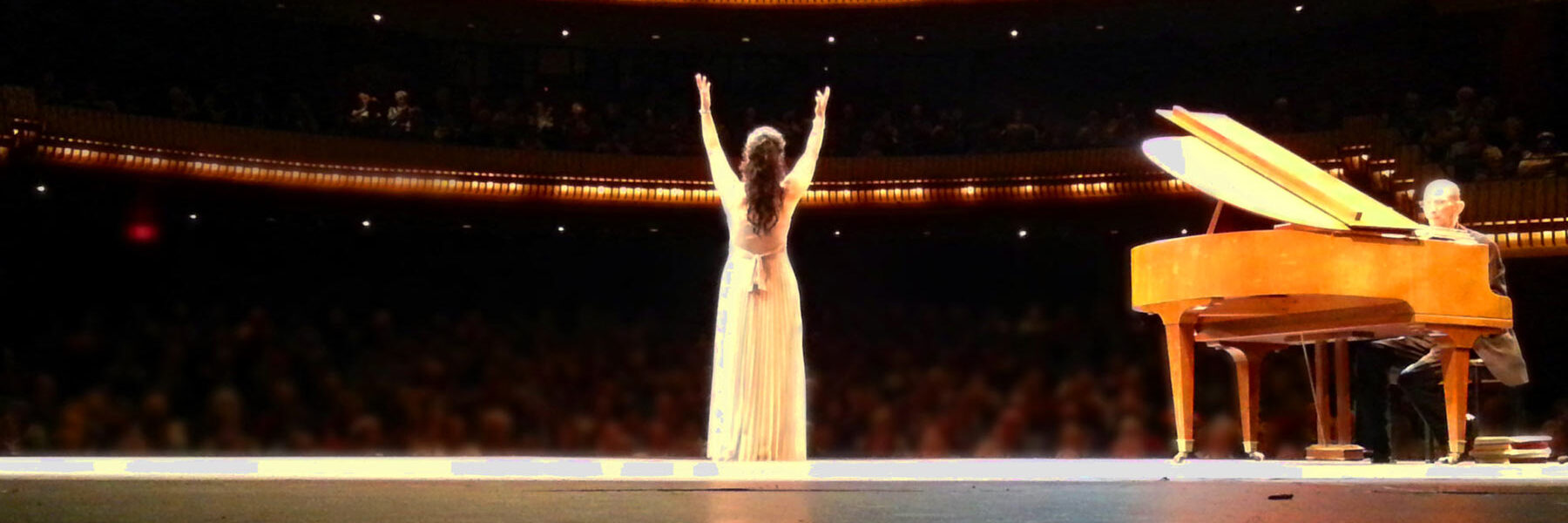Our arts and cultural organizations are bringing laughter, tears, and joy directly to our homes as we shelter in place around the world. From beluga whales watching a penguin walk through an empty aquarium to isolated ballet dancers virtually performing in harmony to Broadway stars teaching students how to sing and dance from their homes, we see the power of the arts and culture sector in our new virtual environment as humanity craves the community and creativity these organizations provide.
With venues closed across the globe, our role is more essential than ever to the ecosystem of arts and culture nonprofits. We need to inspire confidence in donors to support our mission and embrace our organization and its impact in the community. We enrich lives through the power of philanthropy—be courageous and take pride in the importance of that work.
What can we as fundraisers do during this very difficult “intermission”? The following article shines a spotlight on the importance of being courageous and creative during these unprecedented times.
Courageous
There is no room for fear in fundraising right now. What I learned from fundraising during the 2008 recession and post-Hurricane Harvey is that our profession takes fearlessness and resilience. In both instances, our teams had to quickly adapt and recalibrate contributed revenue streams for the organizations. When we let fear become a motivating factor in our work, we become averse to taking risks as development professionals. Fear is one of the most powerful human emotions. Some fears are instinctual and keep us alert of danger, like staying safe amidst a global pandemic. Other fears inhibit our growth professionally and can keep us from connecting with donors during this time. It is hard for us as fundraisers to escape fear right now, but we can learn to manage it, and stand up in front of it with courage. Donors want to connect with you and help your organization, so do not let fear convince you otherwise.
It is important to run this difficult race with boldness and perseverance. We are in a fundraising marathon, so make sure to pace yourself so you don’t burn out. Use this intermission as an opportunity to motivate, cultivate, and steward your board members, volunteers, and donors, encouraging them to run this race alongside you. Share your re-forecasted goals with them and ask for their partnership to engage new donors with a challenge match. It is critical the board and executive leadership endure with development during this time by investing in fundraising resources instead of eliminating them.
We need to encourage and uplift our colleagues to keep striving ahead in confidence and positivity. It is easy to get discouraged right now, so we must take time to applaud each other and say, “Brava! What you do is important and incredibly essential.” Next time you have a virtual meeting with colleagues or funders, make an active decision to be positive and see how that affects the conversation.
Creativity
As fundraisers it is easy to assume that creativity is reserved for the artistic teams, curators, teaching artists, and graphic designers at our institutions, but creativity belongs to the fundraisers. Times of disruption give fundraisers permission to be more creative and innovative than usual, so implement ideas and create efficiencies that may be long overdue. Consider creative donor relations strategies to steward those who donated their tickets back to your organization. Now is also a great time to use data to drive innovative decisions. Think about cleaning or restructuring your database or implementing analytics. If you invest in development structures and processes now, you will be better prepared to weather the road ahead.
Creativity is about connecting the dots and using our existing knowledge base to solve a problem in an inventive new way. Who knows better about connecting the dots than fundraisers? Let’s utilize our connective energy to bring together new ideas and next practices during this time. This intermission allows you to collaborate with your marketing and communication teams to redefine digital stewardship strategies. Look at streamlining prospect development pipeline and portfolio efforts between your research and major gift teams. Collaborate with your CEO to translate their strategic vision into your fundraising plan.
As we collectively fight this global pandemic, fundraising and executive leaders must harness their collaborative energy to share best practices, challenges, and successes with each other. It is a great time for your organizations to over-collaborate and over-communicate with internal and external stakeholders. Talk with your planned giving officer about creative gift solutions. Encourage the advancement team to help donors with deferred payments and utilization of their donor advised funds. Schedule virtual coffee meetings with loyal donors and pair them with a teaching artist, zookeeper, curator, or resident company artist.
We must foster and celebrate the creativity of each other as we implement new innovative ideas and techniques in our sector. When we are passionate and talk about innovation, we become catalysts for creativity. The key is to surround yourself with like-minded fundraising innovators who want to change the arts and culture sector the same way you do.
The arts and culture organizations are inspiring the world right now from the virtual space, so let’s harness that same courageous and creative energy into impactful fundraising solutions. It is the only way we will be able to adapt to this drastically changing philanthropic landscape. Now is the time to take center stage as the brave fundraising artist you are. Walk downstage, my friends, find your spot, look out into the audience, and shine!
At BWF, we are ready to serve as thought partners to advance the mission of your organization in periods of sustained growth or economic uncertainty. Thoughtful decisions, especially in these challenging times, are essential to meeting key organizational objectives and philanthropic goals. To learn more about the BWF approach, please email info@bwf.com.




